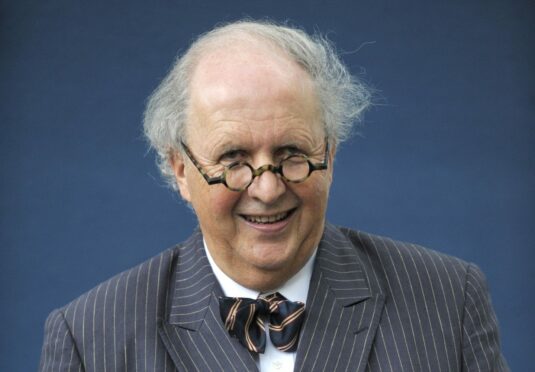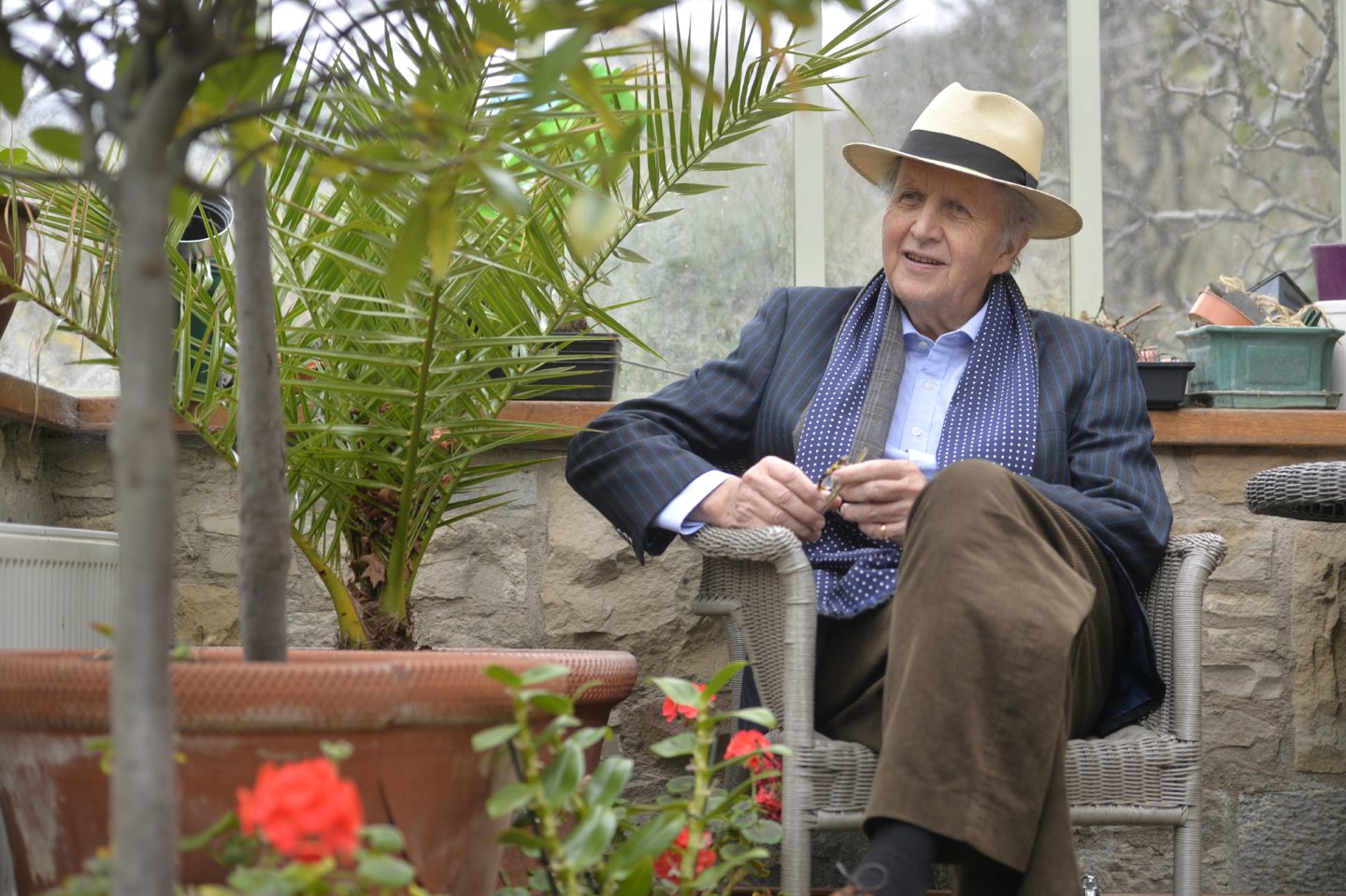
“’Twas the night before Christmas, when all through the house not a creature was stirring, not even a mouse…”
It is the most famous line from one of the most iconic festive poems – A Visit From St Nicholas, written in 1882 by American Clement Clarke Moore for his children – but it has never been strictly true at the home of one of Scotland’s best-loved authors, Alexander McCall Smith.
The writer, who also penned childhood tales for his children, remembers Christmas Eves when his young daughters, Lucy and Emily, would hop into bed and, with eyes tight shut, eagerly await Santa’s arrival. “Just after they went to bed, I would ring some bells outside. They thought this was the reindeer arriving,” he said with a chuckle.
Now both doctors with children of their own, the festive family traditions the girls enjoyed live on but these days Christmas is spent on alternate years with their parents and in-laws, revealed McCall Smith, now 75 and a proud grandfather of four little ones aged eight and under.
He said: “It is wonderful that small children believe in Santa Claus. Christmas mornings in our home usually began when the children woke up, which was pretty early because they were very excited.
“We would wait outside the sitting room and then line up with the shortest at the front and the tallest at the back, in strict height order.
“Then you would troop into the room and confront the evidence. As when I was a child, you would always have left a glass of milk and some biscuits on Christmas Eve for Santa. Lo and behold, on Christmas morning, the milk and the biscuits would be gone and that, of course, was proof positive that Santa had been there!”
The writer – whose very first fiction, The White Hippo, was published for children in 1980 – today treats children of all ages to a special Yuletide tale exclusively for The Post, taking readers on an adventure around the country from Dundee to the Hebrides, and it’s as much a love letter to Scotland as it is to fun and to tradition.
And tradition, says McCall Smith – the author of more than 40 children’s books and with more than 20 million novels for adults sold globally – is never more important than in the dark days.
“Christmas has a job to do,” he said. “Whether one adopts it in a religious sense or a non-religious sense, it is important. It is about concern for others and the value of others.
“It is a burst of light, a festival of joy and kindness for us in the Northern Hemisphere at what is a very dark time in the year, when the days are short and cold. It can reunite people and re-establish contact among those who may have lost touch. It is an affirmation of the value of friendship.
“It is hard to believe that here we are facing a Christmas when there is effectively trench warfare. When young men on both sides, Ukraine and Russia, will be spending Christmas in trenches.
“It is such an awful thought. We are going right back to 1914. Christmas can remind people of the values that are threatened by this war and its associated tensions.
Christmas is about friends and relations, Christmas dinner, the pulling of crackers and the giving of gifts. I had three sisters and Christmas was exactly like that.
“Nothing has changed. Most people don’t want anything to change at Christmas. We need that in our lives, we like stability. Tradition is comforting especially in this uncertain world which, at the moment, is particularly bleak. Tradition gives us stability and reassurance at uncertain times.”
McCall Smith will spend Christmas at home in Edinburgh with his wife Elizabeth, friends and relatives. He said: “It is the in-laws’ turn this time and we will be doing New Year with the children and grandchildren. We have old friends from France coming to spend Christmas with us, and one of my sisters and a friend from Edinburgh. The house will be full of guests.”
He has newly returned from New York on board Cunard’s Queen Mary 2 ocean liner among literary A-listers like Ian Rankin, Bernardine Evaristo, Mary Beard and Richard Osman for the Literature At Sea Festival.
During the Atlantic crossing the novelist, poet and playwright learned he was the recipient of the 2022 Saltire Society Lifetime Achievement Award for his contribution to Scottish literature. It’s a welcome addition to a National Arts Club award – the Medal of Honor for Achievement in Literature – which he received during an earlier trip to the Big Apple in 2017.
And it is yet another in a long list of accolades for the former professor of medical law who is the author of the Scotland Street series and the much-loved 24 volumes of the ever-popular No 1 Ladies Detective Agency which will celebrate its exciting 25th anniversary next year.
McCall Smith doesn’t let success go to his head, however, joking his greatest achievement was passing his “Grade Four euphonium exam when he was 40 and everyone else was 12”.
The importance of storytelling – especially for children – should never be underestimated, he said. “We are a story-telling species, going right back to the original cave paintings; that is how we bond in many cases. There is a mutuality in it. The idea of transmitting culture through writing stories is a very ancient one, and seminal to the species.
“Stories for children are entertaining and amusing but they are also there to develop and mould imagination. They teach children to imagine what it is like to be somebody else, to empathise and that of course is an important constituent part of their moral nature.
“If children are brought up with stories, they are much more likely to be sympathetic towards others and see other people’s points of view. It is a really important function.”
A world of greater empathy and understanding is his most fervent wish as a new year looms: “What everybody hopes for, almost without exception, is the restoration of peace and concord. People want goodwill rather than confrontation and aggression.
“We hope for an end to the conflicts that are causing so much distress and an end to the consequences of those conflicts. Many people are facing a year of hunger. One would hope conditions will return to normal, so that the need can be satisfied.”

Enjoy the convenience of having The Sunday Post delivered as a digital ePaper straight to your smartphone, tablet or computer.
Subscribe for only £5.49 a month and enjoy all the benefits of the printed paper as a digital replica.
Subscribe © SYSTEM
© SYSTEM